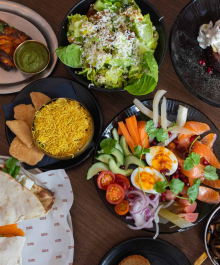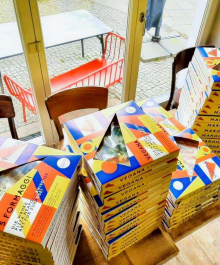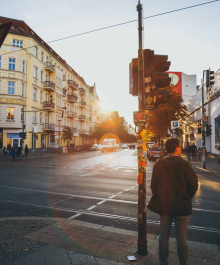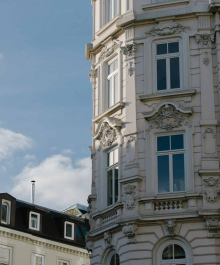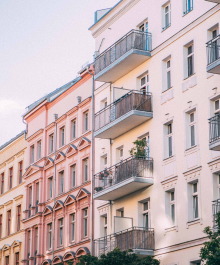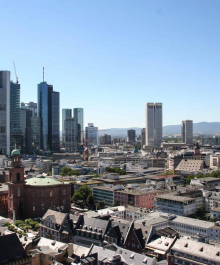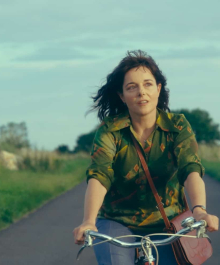
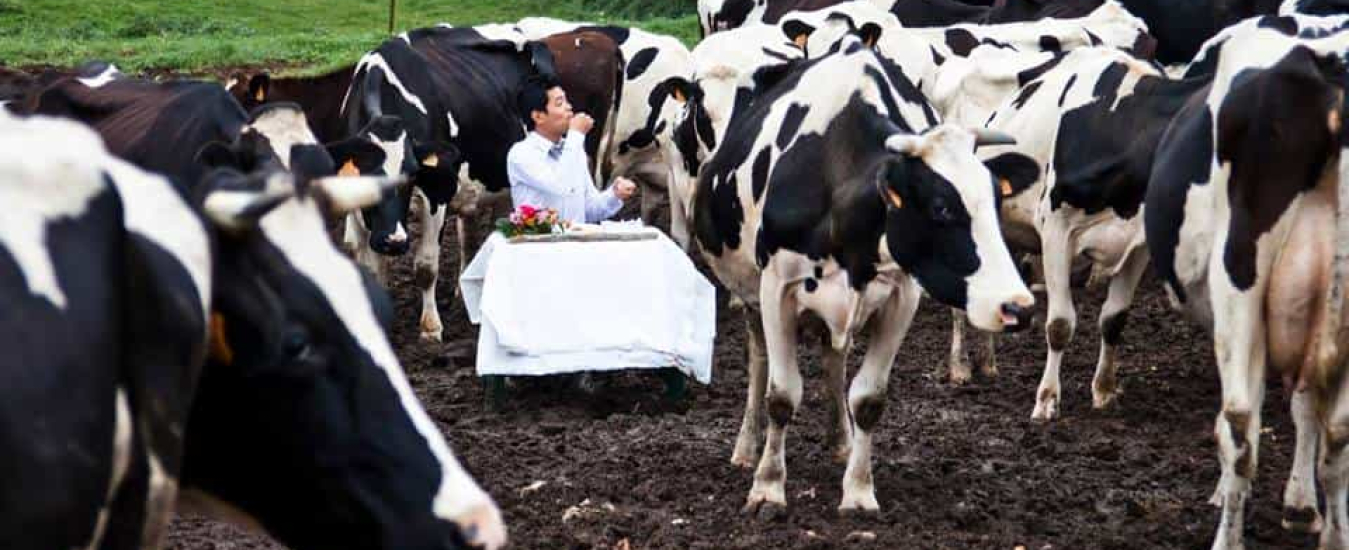
Nomadic Philosophies with Pepe Dayaw at Berlin Food Art Week
By Sarah Luisa Santos . June 8, 2015
What is identity? Why do we all need to belong to somewhere? Why not just simply be, and establish a new connection wherever we go?
These were the questions that confronted me after my meeting with Philippine artist Pepe Dayaw.
Pepe is going to take part in the Berlin Food Art Week, which starts on the 19th of June, with artworks in venues all over Berlin.
BERLIN LOVES YOU is one of the media partners of the event, and that’s why I met Pepe Dayaw.
Our talk started with him asking me where I was from. That’s how the topic of our conversation began to develop.
I already knew he was from the Philippines, but to be honest I had never had contact with anyone from there. But, opposite to me, Pepe is quite familiar with the Brazilian culture, and, to my surprise, he speaks very good Portuguese – one of the four languages he is fluent in.
I soon came to know he had an artistic residency in São Paulo, and actually worked close to a poor community that occupied an abandoned building in the centre of the city. As this was was only one of his projects worldwide, as he certainly a globetrotter.
“I got a scholarship to do a Masters in International Performance Research in Amsterdam and England. Shortly afterwards I went to live in Spain, where then I learned Spanish, so Portuguese was of course quite easy afterwards (laughs).”
Pepe is a performance artist now based in Berlin, but born and raised in the Philippines, where he studied his bachelor in Anthropology, specialized in Philippine Art Tradition.
“It was a very unique course. We were only 12 people on the course. We also specialized in traditions, studying artistic traditions all over the Philippines. It’s quite a problematic concept – we have a huge diversity of practices. For example, we have around 170 different languages and 70000 islands, so this alone is already a beautiful case study.”
From his studies he started an internship that then became a job of seven years in the Kaloob Foundation Inc. dedicated to ethnographic research for indigenous music, dance and rituals.
That was where Pepe learned how to dance.
“One of the groups was specialized in Pangalay, a dance from the southern traditional Philippine community.
“So I learned this dance from them, because one of the focuses of the foundation was to learn by doing. Kaloob – the foundation’s name – means gift, but it is in the meaning of something that was given to you, like a talent.
“So, this was a very colorful experience. It made me find myself in my body. I got liberated in a way because I never thought of myself as a dancer. I was 22 when I learned it, and, well… I became a dancer!”
Being that kind of person that embraces all opportunities that comes his way, Pepe went on to study Nomadic Philosophies, and later on he deepened his questionings about identity and his own search for his Philippine identity.
“My work is… I mean, what is it? What about identity, you know? This thing we have such a big issue about, especially when we are moving around countries. And, for a person like me, which is from the Philippines, it was very hard to come to Europe. I was rejected once to get the visa, and I always had this fear, well now not anymore, but whenever I used to get my passport checked I would be, you know…
“I was always questioned longer in the passport controls. For example, once I just waited 20 minutes there to be asked questions and this was perfectly fine to the immigration officer to do that to me and not to the other people. These things and, of course, my work in the Philippines brought me to the point in my work I’m at.”
Pepe constantly explores this search for an identity in his artwork, and he explained to me that he discovered so much about himself while learning the Philippine tradition and, at the same time, this actually had an impact in the growth of the new nationalism, predominant in the Philippines nowadays.
“I was doing dance. My body was liberating itself through dance. But, at the same time, the perception of what I was doing had also a very different political aspect which was about the construction of the Philippine identity. There is an emerging Philippine nationalism happening over there, so the notion of people when they see a person wearing a traditional costume changes. It makes people appreciate their history, which is quite interesting because the Philippines is also an invented concept, which was created during the 16th century, when the Spanish occupied what we now call the Philippines.”
For Berlin Food Art Week, Pepe will appropriate this historical fact and perform Pepe Dayaw Spice Routes, referring to the expeditions in search for spices from the colonial times, to his own personal search and experience.
“It’s interesting because I attach my “micro-politic-auto-biography” into this history. So, how do I make a continuum between these two… a fact that’s until today so remembered or familiar to a lot of people. Colonialism is something that we never lived, but somehow we know, we still experience it in contemporary ways and it’s also imposed on us somehow, because of education and so on.”
Spice Routes is a performance where Pepe Dayaw proposes to the audience his “research process where he inhabits spaces to explore tactics for democracy and agency”, and the audience is invited to taste a co-developed menu made in partnership with Brazilian Chef Sabine Hueck, who also follows this kind of search for an identity, as she mixes Brazilian and German cuisine (Sabine was born and raised in Brazil but is descended from a German family).
“So, basically, Spice Routes is a kind of trans-disciplinary performance, because it involves a lot of folklore, dance, cooking, chanting, improvised poetry and stories. It’s funny, too and in a very intimate setting.”
“I have done three Spice Routes already and, even though it’s the same performance, you will never see the exact same story, because every time I perform it, something new happens, something that emerges… it kind of revises itself all the time. You can say that Spice Routes is a bowl, and every time I perform it there are new ingredients in it!”
Indeed a kind of showman, but definitely not the protagonist, Pepe asks the participation of his audience for his performance to happen completely.
“I also invite and ask the audience to do things, because I think this would not work without their participation.
“I go in and out of this role of a “showman”. One time I’m just this person talking to you and the next I’m this person doing a ritual. And sometimes I need responses and reactions and inputs from the audience.”
Another project from this multi-tasking artist is the Nowhere Kitchen, where he uses cooking as a tool to provide people new ways to interact, like setting up a Nowhere Kitchen in a given context like a concert, vernissage or a festival.
“Nowhere Kitchen is a research platform that translates what I do, this kind of cooking I learned from cooking the left overs (another project from him) – something I want to share and transfer as a knowledge. It’s also about live performance and improvisation… well, all my work is about that.
“It’s focused on the process of making food, but also the social aspect of it. Cooking creates, and I use this tool to occupy a given context, just to create another way of interacting with one another.”
Pepe Dayaw Spice Routes performance will happen at Sabine Hueck Atelier Culinário on the 23rd of June at 18pm.
For the overview of Berlin Food Art Week events here.

